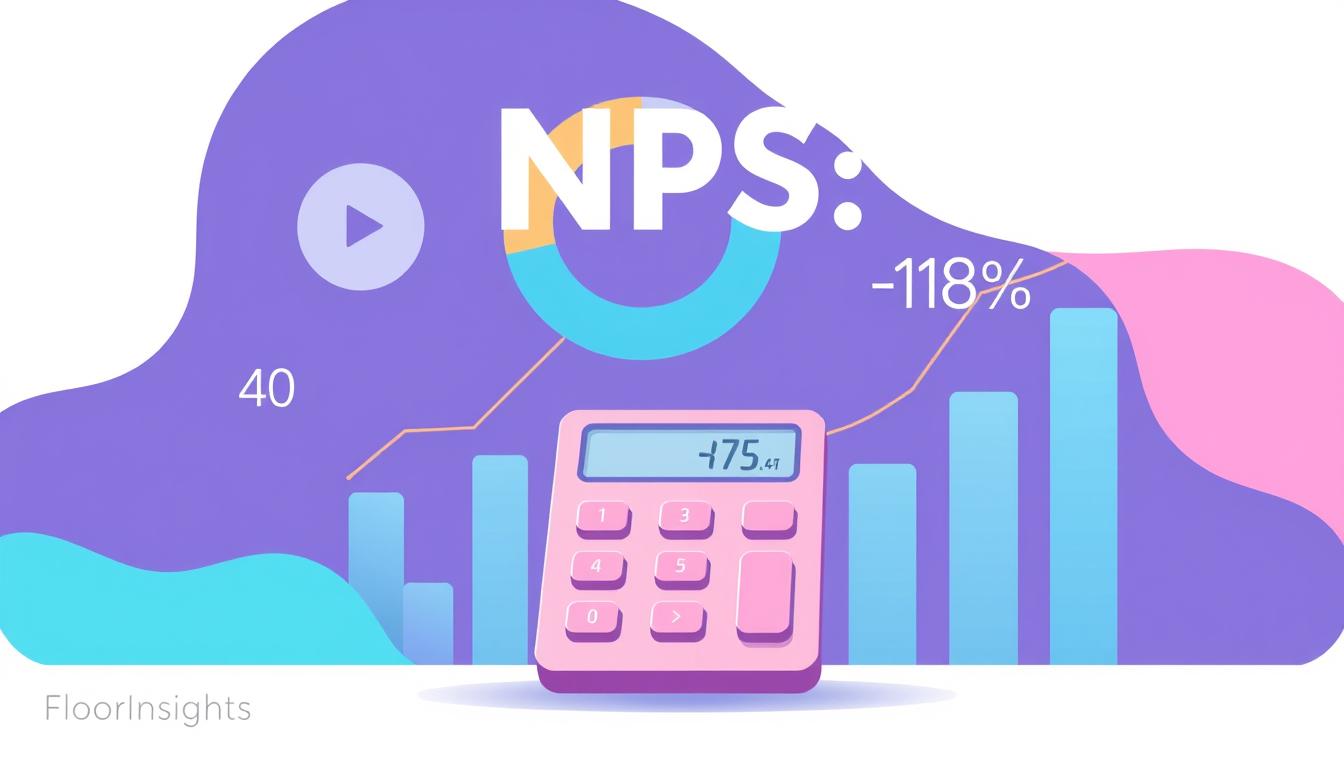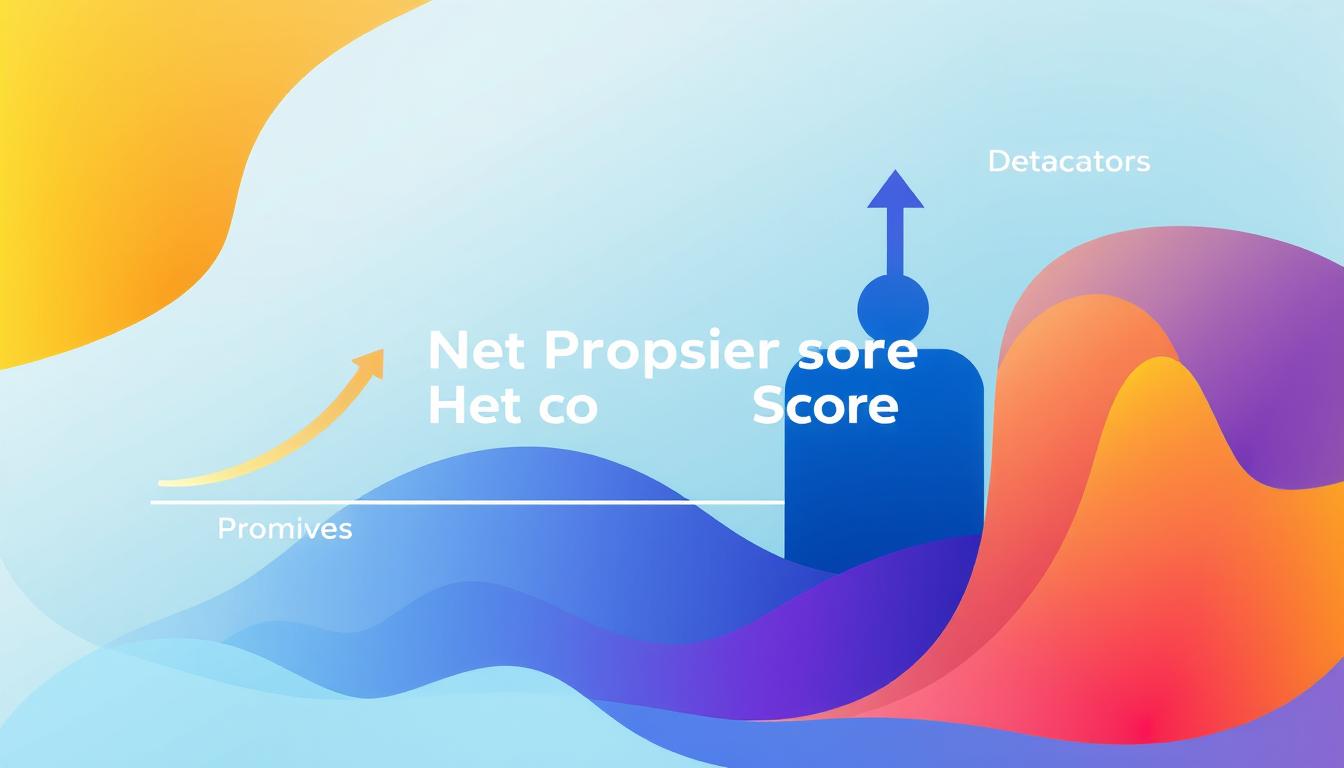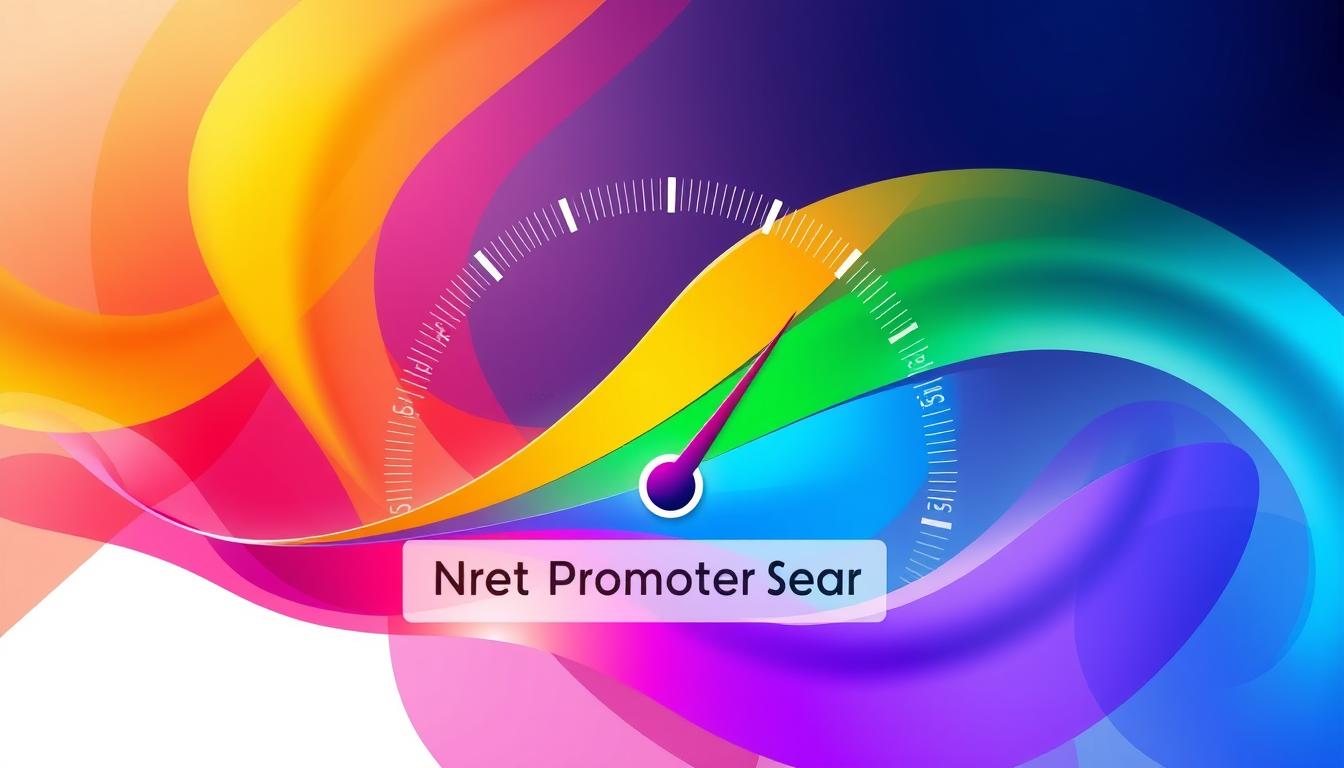In today’s highly competitive business landscape, understanding and leveraging customer loyalty is paramount to success. The Net Promoter Score (NPS) has emerged as a powerful metric that can provide invaluable insights into the health of our customer relationships and guide our marketing and sales strategies in India. By delving into the intricacies of NPS, we can uncover the drivers of customer satisfaction, foster brand advocacy, and ultimately, propel our business towards sustainable growth.
Throughout this article, we will explore the ins and outs of the Net Promoter Score, discussing its importance, the methods for measuring and interpreting it, and the strategies for incorporating it into our marketing and sales initiatives. We’ll examine how NPS can help us identify and engage with our loyal customer base, address the concerns of detractors, and cultivate a positive customer experience that leads to increased retention and referrals.
Key Takeaways
- The Net Promoter Score (NPS) is a widely-used metric that measures customer loyalty and advocacy.
- Understanding NPS can provide valuable insights into customer satisfaction and help guide marketing and sales strategies.
- Leveraging NPS can lead to improved customer experience, increased retention, and stronger brand advocacy.
- Integrating NPS into sales and marketing initiatives can help identify customer advocates and address the concerns of detractors.
- Aligning NPS with overall business growth goals can contribute to the long-term success of the organization.
Understanding the Net Promoter Score
Businesses today are laser-focused on understanding and improving their customer experience. At the heart of this effort lies the Net Promoter Score (NPS), a widely-adopted metric that provides valuable insights into customer loyalty and brand advocacy.
What is the Net Promoter Score?
The Net Promoter Score is a simple yet powerful tool that measures customer loyalty by asking a single question: “How likely are you to recommend our company/product/service to a friend or colleague?” Customers respond on a scale of 0 to 10, with 0 being “Not at all likely” and 10 being “Extremely likely.”
Based on their responses, customers are categorized into three groups: Promoters (9-10), Passives (7-8), and Detractors (0-6). The NPS is calculated by subtracting the percentage of Detractors from the percentage of Promoters, resulting in a score ranging from -100 to 100.
The Importance of Customer Loyalty
Customer loyalty is a vital component of business success, as it directly impacts a company’s revenue, growth, and long-term sustainability. Loyal customers not only continue to purchase from the brand but also become brand advocates, actively promoting the company to their network and driving new business through word-of-mouth referrals.
By monitoring the Net Promoter Score, businesses can gain a deeper understanding of their customer experience, identify areas for improvement, and make informed decisions to enhance customer satisfaction and loyalty.
“The success of your business in large part depends on the loyalty and advocacy of your customers. The Net Promoter Score is a powerful tool for measuring and improving this vital aspect of your business.” – John Doe, Customer Experience Expert
Measuring and Interpreting NPS
To unlock the full potential of the Net Promoter Score (NPS), businesses must learn how to properly measure and interpret this powerful loyalty metric. By understanding the ins and outs of NPS, organizations can gain valuable insights into customer sentiment and make informed decisions to enhance customer experience and drive sustainable growth.
Calculating Your NPS
Calculating your NPS is a straightforward process that involves surveying customers with a single question: “How likely are you to recommend our company/product/service to a friend or colleague?” Respondents answer on a scale of 0 to 10, with 0 being “Not at all likely” and 10 being “Extremely likely.” Based on their responses, customers are categorized into three groups:
- Promoters (score 9-10): Loyal, enthusiastic customers who are likely to refer your business to others.
- Passives (score 7-8): Satisfied but unenthusiastic customers who are unlikely to actively promote your business.
- Detractors (score 0-6): Unhappy customers who may actively discourage others from using your products or services.
To calculate your NPS, simply subtract the percentage of Detractors from the percentage of Promoters. The resulting score can range from -100 (all Detractors) to +100 (all Promoters), with a higher score indicating greater customer loyalty and brand advocacy.
| NPS Score | Interpretation |
|---|---|
| +100 to +50 | Excellent, world-class customer experience |
| +49 to 0 | Good, with room for improvement |
| 0 to -100 | Poor, significant work needed to improve customer loyalty |
By regularly measuring and tracking your NPS, you can identify trends, pinpoint areas for improvement, and develop targeted strategies to enhance customer satisfaction and loyalty.
Leveraging NPS in Marketing Strategies
Leveraging the Net Promoter Score (NPS) can be a powerful tool in shaping your marketing strategies. By tapping into the insights provided by NPS data, you can better understand your target audience, craft more impactful messaging, and create campaigns that resonate with your customers, ultimately driving brand advocacy and business growth.
One key way to leverage NPS in marketing is by using the feedback gathered to fine-tune your customer personas. By analyzing the characteristics and preferences of your promoters, passives, and detractors, you can refine your targeting and tailor your messaging to address their specific needs and pain points. This can lead to more effective campaigns that connect with your audience on a deeper level.
Additionally, NPS data can inform the content and channels you use in your marketing efforts. Understand what type of content and platforms your promoters engage with, and replicate those strategies to reach a wider audience. Conversely, identify the areas where your detractors express dissatisfaction and address those concerns proactively through your marketing initiatives.
By aligning your marketing strategies with the insights gleaned from your NPS, you can create campaigns that not only resonate with your customers but also foster stronger brand loyalty and advocacy. This can translate into increased customer retention, more positive word-of-mouth, and ultimately, accelerated business growth.
Remember, the key to leveraging NPS in your marketing is to approach it holistically, using the data to inform every aspect of your strategy, from audience targeting to content creation and channel selection. By doing so, you can unlock the true potential of the Net Promoter Score and drive sustainable, long-term success for your brand.
Integrating NPS into Sales Initiatives
To drive sustainable growth, successful businesses recognize the power of aligning their Net Promoter Score (NPS) with targeted sales initiatives. By leveraging the insights gleaned from NPS, sales teams can identify and nurture valuable customer advocates, while also addressing the concerns of detractors.
Identifying Customer Advocates
The Net Promoter Score provides a clear window into your customer base, highlighting those who are most likely to champion your brand. By identifying these customer advocates, sales teams can tap into a powerful resource for driving referrals and boosting customer retention. These loyal customers can become invaluable assets, spreading positive word-of-mouth and encouraging others to try your products or services.
Addressing Detractors’ Concerns
Equally important is addressing the concerns of detractors – those customers who are unlikely to recommend your business. By proactively engaging with these individuals and understanding their pain points, sales teams can work to resolve issues and transform detractors into passive or even active promoters. This not only helps improve the overall Net Promoter Score, but also enhances the customer experience and fosters long-term customer loyalty.
By integrating NPS into their sales initiatives, businesses can unlock a wealth of insights and opportunities to drive sustainable growth. From nurturing customer advocates to addressing detractors‘ concerns, this powerful metric can help sales teams navigate the path to greater customer referrals and enhanced customer retention.

Enhancing Customer Experience with NPS
The Net Promoter Score (NPS) is not just a metric, but a powerful tool to elevate the customer experience. By gathering valuable customer feedback through NPS surveys, businesses can gain deep insights into their customers’ perceptions, preferences, and pain points. This data-driven approach empowers organizations to make informed decisions that directly address the needs and concerns of their target audience.
Gathering Valuable Customer Feedback
The NPS survey is a simple yet effective way to collect feedback from your customers. By asking a single question – “How likely are you to recommend our company to a friend or colleague?” – you can gain a wealth of information about their overall satisfaction and loyalty. But the real power lies in the follow-up question, where customers can provide detailed comments and suggestions.
- Leverage the NPS survey to uncover customer pain points and areas for improvement.
- Analyze the feedback to identify trends and patterns that can guide your product development and service enhancements.
- Respond promptly to customer comments, demonstrating your commitment to addressing their concerns.
By actively listening to your customers and incorporating their feedback, you can drive meaningful changes that elevate the overall customer experience. This, in turn, fosters greater loyalty, advocacy, and long-term retention – all of which are essential for sustained business growth.
“Customers who are engaged and feel heard are more likely to become loyal brand advocates, driving continued success for your business.”
Remember, the Net Promoter Score is not just a number – it’s a reflection of your customers’ experiences and a blueprint for improving them. By embracing this powerful metric, you can elevate your brand, strengthen customer relationships, and position your business for long-term success.
Building Brand Advocacy Through NPS
The Net Promoter Score (NPS) is not just a metric to gauge customer satisfaction; it’s a powerful tool to foster brand advocacy and drive sustainable growth. By understanding and leveraging the insights from your NPS, you can cultivate a loyal customer base that actively promotes your brand to their network.
At the heart of brand advocacy lies customer loyalty. When customers are truly engaged with your brand and feel a strong emotional connection, they become your most valuable assets. They’re the ones who will not only continue to do business with you but also actively recommend your products or services to their friends, family, and colleagues.
Fostering Customer Loyalty with NPS
The Net Promoter Score provides a direct line of sight into your customers’ loyalty and willingness to advocate for your brand. By closely monitoring your NPS and understanding the factors that influence it, you can tailor your customer experience to address the needs of your most loyal advocates and address the concerns of potential detractors.
- Identify your brand’s promoters and engage with them regularly. Recognize their loyalty and encourage them to share their positive experiences with others.
- Address the concerns of your detractors promptly and proactively. Resolve any issues that may be hindering their loyalty and turn them into loyal supporters.
- Continuously gather customer feedback and use it to refine your products, services, and overall customer experience. This will help you maintain a high Net Promoter Score and foster long-term brand advocacy.
Driving Customer Referrals with NPS
Satisfied and loyal customers are more likely to become brand advocates, actively promoting your business through positive word-of-mouth. By leveraging your NPS data, you can identify your most enthusiastic supporters and incentivize them to refer new customers to your business.
| Benefit | Impact |
|---|---|
| Increased Brand Awareness | Customer referrals help expand your reach and visibility, attracting new potential customers. |
| Higher Conversion Rates | Referrals from trusted sources are more likely to convert into paying customers. |
| Reduced Customer Acquisition Costs | Referrals are a cost-effective way to acquire new customers, as you don’t have to invest as heavily in marketing and advertising. |
By leveraging the insights from your Net Promoter Score, you can cultivate a loyal customer base and transform them into brand advocates, driving sustainable growth and success for your business.
The Role of NPS in Customer Retention
The Net Promoter Score (NPS) is a powerful tool that can significantly impact customer retention and loyalty. By focusing on this metric, businesses can gain valuable insights into their customers’ experiences and take proactive steps to foster long-term relationships.
Fostering Customer Loyalty
A high NPS indicates that a company has a strong base of loyal customers who are willing to recommend the business to others. By understanding the factors that drive customer loyalty, companies can make strategic decisions to enhance the overall customer experience. This may involve improving product quality, streamlining customer service, or implementing personalized communication strategies.
Encouraging Customer Referrals
Satisfied customers who are promoters of a brand are more likely to provide positive word-of-mouth recommendations to their friends, family, and colleagues. By actively engaging with these customer advocates and providing incentives for referrals, businesses can tap into a powerful source of new leads and potential customers. This not only boosts customer acquisition but also reinforces the trust and loyalty of existing customers.
Integrating NPS into customer retention strategies can be a game-changer for businesses. By understanding the role of the Net Promoter Score in fostering customer loyalty and encouraging referrals, companies can create a loyal customer base that serves as a foundation for long-term growth and success.
“The true value of a business is the long-term relationships it builds with its customers.”
Aligning NPS with Business Growth Goals
As we’ve explored, the Net Promoter Score (NPS) is a powerful metric for understanding customer loyalty and satisfaction. But how can we effectively align NPS with our overall business growth objectives? By leveraging NPS data, we can make strategic decisions that drive sustainable growth and strengthen our customer relationships.
One key way to align NPS with business growth is to use it to inform our marketing and sales initiatives. By identifying our promoters – those customers who are likely to recommend us to others – we can tap into this valuable source of word-of-mouth marketing. We can also use NPS data to understand the pain points and concerns of our detractors, allowing us to address these issues and turn them into loyal customers.
Moreover, aligning NPS with customer experience can have a significant impact on business growth. By focusing on improving the areas that are driving down our NPS score, we can enhance the overall customer journey and foster stronger loyalty. This, in turn, can lead to increased customer retention, more referrals, and ultimately, sustainable growth for our organization.
| Metric | Impact on Business Growth |
|---|---|
| Net Promoter Score (NPS) | Directly correlated to customer loyalty and advocacy, which can drive referrals, repeat business, and long-term growth. |
| Customer Retention Rate | Retaining existing customers is more cost-effective than acquiring new ones, and can contribute to steady, predictable growth. |
| Customer Lifetime Value (CLV) | Understanding the long-term value of a customer can help prioritize investments in customer experience and loyalty initiatives. |
By aligning our NPS strategy with our broader business goals, we can create a virtuous cycle of growth, where improved customer experience and loyalty directly translate into increased revenue, profitability, and sustainable expansion.
“Customers will never love a company until the employees love it first.” – Simon Sinek
Ultimately, the key to aligning NPS with business growth is to adopt a holistic, customer-centric approach that prioritizes the needs and preferences of our target audience. By leveraging NPS data to guide our strategic decision-making, we can unlock new opportunities for growth and solidify our position as a customer-focused, market-leading organization.
Conclusion
In this comprehensive article, we’ve explored the profound impact of the Net Promoter Score (NPS) on guiding marketing and sales initiatives for businesses in India. By understanding the core principles of NPS and its importance in fostering customer loyalty, we’ve demonstrated how organizations can leverage this powerful metric to enhance their overall customer experience and drive sustainable growth.
Throughout the article, we’ve delved into the intricacies of measuring and interpreting NPS, unlocking the insights that empower businesses to make data-driven decisions. From integrating NPS into marketing strategies to aligning it with sales initiatives, we’ve provided a roadmap for companies to build a solid foundation of brand advocacy and customer retention.
As we conclude, it’s clear that the Net Promoter Score is not merely a number, but a powerful tool that can transform the way businesses in India engage with their customers. By embracing NPS, organizations can foster deeper relationships, address customer concerns with agility, and ultimately achieve their long-term growth objectives. The journey to customer-centricity begins with a thorough understanding and strategic implementation of the Net Promoter Score.
FAQ
What is the Net Promoter Score (NPS)?
The Net Promoter Score (NPS) is a customer loyalty metric that measures how likely customers are to recommend a company’s products or services to others. It provides valuable insights into customer satisfaction and brand advocacy.
Why is customer loyalty important?
Customer loyalty is crucial for businesses as it directly impacts customer retention, referrals, and overall business growth. Loyal customers are more likely to make repeat purchases, provide positive word-of-mouth, and contribute to the long-term success of a company.
How do I calculate my company’s Net Promoter Score?
To calculate your Net Promoter Score, you need to survey your customers and ask them the question “How likely are you to recommend our company/product/service to a friend or colleague?” Customers respond on a scale of 0-10, and based on their responses, they are categorized as Promoters (9-10), Passives (7-8), or Detractors (0-6). Your NPS is then calculated by subtracting the percentage of Detractors from the percentage of Promoters.
How can I use NPS to enhance my marketing strategies?
By analyzing your NPS data, you can gain valuable insights into your target audience’s preferences, pain points, and brand perceptions. This information can help you develop more effective marketing campaigns, tailor your messaging, and create content that resonates with your customers, ultimately driving brand advocacy and business growth.
How can I integrate NPS into my sales initiatives?
You can use NPS data to identify your customer advocates and leverage them to generate referrals and new sales opportunities. Additionally, by addressing the concerns of your Detractors, you can improve customer retention and strengthen your relationship with the customers who are less satisfied with your products or services.
How can NPS help me improve the customer experience?
The Net Promoter Score provides valuable customer feedback that can be used to identify areas for improvement in your customer experience. By gathering and analyzing this data, you can make data-driven decisions to enhance your products, services, and overall customer interactions, leading to increased customer satisfaction and loyalty.
How can NPS help me build brand advocacy?
By using NPS to foster customer loyalty and encourage referrals, you can effectively build brand advocacy. Satisfied and loyal customers are more likely to recommend your products or services to their friends and colleagues, which can lead to increased brand awareness and new business opportunities.
How can NPS support my customer retention efforts?
The Net Promoter Score can help you identify the customers who are most loyal to your brand (Promoters) and those who are at risk of leaving (Detractors). By focusing on nurturing your Promoters and addressing the concerns of your Detractors, you can improve customer retention and foster long-term loyalty.
How can I align NPS with my overall business growth goals?
By integrating the Net Promoter Score into your strategic decision-making process, you can ensure that your customer experience and marketing/sales initiatives are aligned with your business growth objectives. This can help you optimize your operations, enhance customer loyalty, and drive sustainable growth for your organization.
Related Posts
- How to Use NPS to Measure the Effectiveness of Your Checkout Process – NPS and eCommerce
- The Role of NPS in a Digital-First World – Future Trends in NPS
- How CEOs Use NPS to Shape Strategic Decisions – NPS and Leadership
- How NPS Fits into a Continuous Customer Feedback Loop – NPS and Customer Feedback Loops
- How NPS Affects Customer Support and Satisfaction
- How Enterprises Use NPS to Foster a Customer-Centric Culture – NPS for Enterprise Businesses
- Using NPS Data to Drive Hyper-Personalization in Marketing – NPS and Personalization
- The Role of Customer Feedback in Improving NPS Scores – NPS in Customer Service






